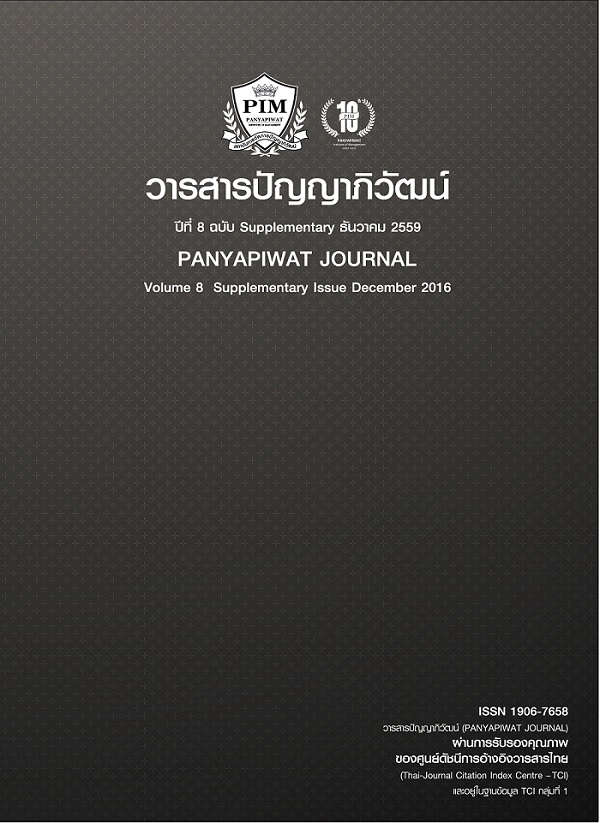基于扎根理论的中国拳击教练员胜任力模型构建研究
Main Article Content
บทคัดย่อ
本文使用扎根理论的质性研究方法,通过对中国国家拳击队的14名高级教练员的访谈数据进行质性分析,初步构建了中国拳击教练员胜任力模型,以此反映拳击教练员所需要具备的胜任力。研究结果显示,中国拳击教练员胜任力模型组成分为专业知识、专业技能、个人特质、管理技能、专业态度、人际关系6个维度28个范畴。模型的建立为拳击教练员的评估、选拔、培训、职业发展等提供了理论依据。
In order to reflect the excellent boxing coaches need to have the professional quality, this paper through analyzing the Chinese national boxing team of 14 senior coaches interview data qualitatively, constructs the Chinese boxing coaches competency model, by using the grounded theory in qualitative research methods. The research results show that the competency model of boxing coaches in our country is divided into 28 categories: professional knowledge, professional skills, personal characteristics, management skills, professional attitude and interpersonal relationships. The establishment of the model provides the theoretical basis for the evaluation, selection, training and career development of boxing coaches.
Article Details
“ข้าพเจ้าและผู้เขียนร่วม (ถ้ามี) ขอรับรองว่า บทความที่เสนอมานี้ยังไม่เคยได้รับการตีพิมพ์และไม่ได้อยู่ระหว่างกระบวนการพิจารณาลงตีพิมพ์ในวารสารหรือแหล่งเผยแพร่อื่นใด ข้าพเจ้าและผู้เขียนร่วมยอมรับหลักเกณฑ์การพิจารณาต้นฉบับ ทั้งยินยอมให้กองบรรณาธิการมีสิทธิ์พิจารณาและตรวจแก้ต้นฉบับได้ตามที่เห็นสมควร พร้อมนี้ขอมอบลิขสิทธิ์บทความที่ได้รับการตีพิมพ์ให้แก่สถาบันการจัดการปัญญาภิวัฒน์หากมีการฟ้องร้องเรื่องการละเมิดลิขสิทธิ์เกี่ยวกับภาพ กราฟ ข้อความส่วนใดส่วนหนึ่งและ/หรือข้อคิดเห็นที่ปรากฏในบทความข้าพเจ้าและผู้เขียนร่วมยินยอมรับผิดชอบแต่เพียงฝ่ายเดียว”
References
Boyatzis, R. E. (1982). The Competent Manager: A Model for Effective Performance. New York: John Wiley and Sons.
Byham, W. C. & Moyer, R. P. (1996). Using competencies to build a successful organization.Pittsburgh. Development Dimensions International.
Carron, A. V. & Bennett, B. B. (1977). Compatibility in the coach-athlete dyad. Research Quarterly,48(4), 671-679.
Cockerill, T., Hunt, J. & Schroder, H. (1995). Managerial competencies: fact or fiction? Business Strategy Review, 6(3), 1-12.
Eitington, J. E. (1989). The winning trainer (2nd ed.). Houston, Tx: Gulf Publishing Company.
Fletcher, S. (1991). NVQs, standards and competence: a practical guide for employers, managers and trainers. London: Kogan Page.
Guo, J. X. (1991). Sports training learning. Beijing: Beijing Sport University Press. [in Chinese]
Ledford, G. E. (1995). Paying for the skill, knowledge, and competencies of knowledge workers. Compensation & Benefits Review, 27(4), 55-62.
Li, J. H. (2006). China’s current situation analysis and development countermeasure of track and field coaches study. Journal of Shenyang sports institute, (11), 63-66. [in Chinese]
Li, J. H. (2011). Track and field coaches in China researching the construction of dominant core quality structure system. Journal of Shenyang sports institute, (12), 100-103. [in Chinese]
Liu, L. (2006). Juvenile football coaches competence characteristics model research in China. Journal of Chengdu sports institute, (7), 52-55. [in Chinese]
McClelland, D. C. (1973). Testing for competence rather than for “intelligence.” American Psychologist,(1), 1-14.
McClelland, D. C. (1998). Identifying competencies with behavioral event interviews. Psychological Science, 9(5), 331–339.
Pan, Y. S. & Sun, T. X. (2014). Sports school tennis coaches competence characteristics exploratory factor analysis. Journal of Shandong sports institute, (01), 110-113. [in Chinese]
Peng, J. F. & Rao, Z. (2003). Competency based human resource management. Beijing: China Renmin University Press. [in Chinese]
Qiu, F. & Yao, G. X. (2009). China’s track and field coaches competence characteristics model, the establishment of the evaluation questionnaire and survey research. Journal of sports science, (7), 17-26. [in Chinese]
Spenser, L. M. & Spenser, S. M. (1993). Competence at Work: Models for superior performance. New York: Wiley & Sons.
Wang, C. Q. (1997). Modern athletic sports coaches should have the quality and the quality of intelligent. Journal of Shandong institute of sports college, (3), 46-49. [in Chinese]
Wang, C. M. (2000). Management Psychology. Beijing: People’s Education Press. [in Chinese]
Wu, F. & Liu, G. B. (2007). Survey of China’s quality structure of national table tennis coaches study. Journal of Chinese sports science and technology, (5), 58-60. [in Chinese]
Xin, K. (2016). Theory of football coaches should have the basic qualities. Journal of intelligence,(11), 239. [in Chinese]
Xu, D. Y. & Qiao, Y. C. (2010). Our 10 successful coaches quality characteristics analysis. Journal of Chengdu sports institute, (12), 36 -39. [in Chinese]
Xu, Y. M. & Man, H. L. (2012). Excellent coaches in China the status quo and characteristics of innovative quality evaluation. Journal of Beijing sports university, (1), 136-139. [in Chinese]
YIN, B. C. (2014). Research on Relationship between the Competency Model of Chinese Athletic Coach and Coach’s Performance. Physical Education Department, (6), 59-67. [in Chinese]
Zhao, Y. H., Liu, G. T. & Xu, F. (2010). The 29th Olympic Games the Chinese and foreign excellent team player the ability of using different location technology comparative study. Journal of Nanjing institute of sport (social science edition), (116), 116-119. [in Chinese]
Zhong, L. F. & Shi, K. (2004). The Competency Model of Senior Managers in Chinese Family Firms. Acta Psychologica Sinica, 36(1), 110-115. [in Chinese]
Zhu, D. P. (2010). Construction of college PE teachers’ competence characteristics model. Journal of sport, (11), 63-67. [in Chinese]
Zong, D. H. (1995). Talk about psychological factors affecting football coaches decision-making. Journal of world football, (22), 11. [in Chinese]

